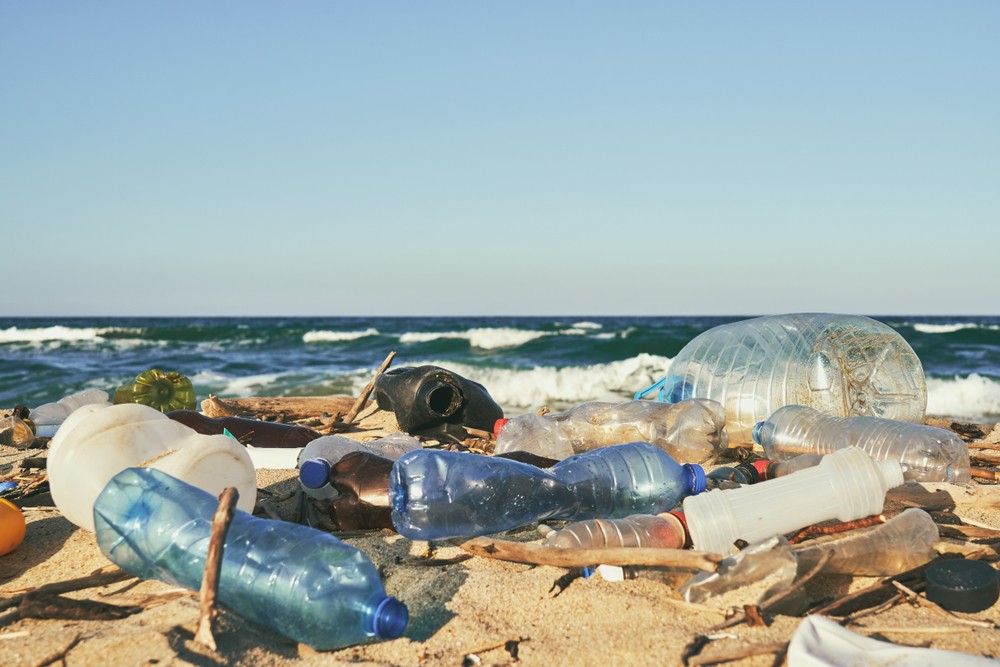Popular Reads
Top Results
Can't find what you're looking for?
View all search resultsPopular Reads
Top Results
Can't find what you're looking for?
View all search resultsFighting plastic pollution through small steps
The fight against plastic waste starts from the small, menial things.
Change text size
Gift Premium Articles
to Anyone
W
e have been relying on disposable plastic packaging for a very long time, and now we have to pay the price. Let’s be real: using plastic packaging is convenient since it is affordable and also very durable. But if every single person on this planet does the same thing, cumulatively we have to deal with a huge amount of plastic waste that the Earth cannot digest. In other words, all of the plastic waste we have right now will be here for at least the next few centuries.
Every year, the global population produces around 300 million tons of plastic waste. Since adequate infrastructure to recycle plastic waste is not available yet, most of it ends up in landfills and the environment. It might sound far-fetched at first, but if you think about it, it actually makes sense. Since the number of landfills is limited and they can’t keep up with the increasing amount of plastic waste, eventually lots of plastic is carried by rivers from cities to the oceans.
According to the United Nations, plastic waste has reached the Mariana Trench — the world’s deepest ocean trench, nearly 11,000 meters below sea level. That fact shows the extent of the plastic pollution in the world's oceans. If our dependency on plastic continues, by 2050, we will have more plastic than fish in our oceans.
Why is it so harmful?
Plastic packaging is everyone’s favorite thanks to its durability. As a consequence, it is hard for nature to biodegrade it. Most plastic waste is broken down into small plastic particles called micro-plastics that will be either swallowed by marine creatures or pollute the water that the human population depends on for daily consumption. So, in conclusion, plastic pollution not only harms the livelihood of marine life — sooner or later it will also harm human beings.
What can we do to fix this?
There are a lot of things we can do to improve the situation. One of the popular movements to reduce plastic waste is called "zero waste", a lifestyle where an individual doesn’t produce any trash at all, doesn't send anything to landfills and doesn't throw anything into trashcans. It might sound ambitious at first. But bear in mind that transitioning to this lifestyle doesn’t happen overnight. Taking some time to reduce plastic usage is very normal and small steps are always appreciated. These are some easy things you can do on a daily basis to reduce plastic waste:
1. Refuse and avoid the use of plastics. For example, in restaurants, kindly ask the waiter to serve your iced tea with no straw, or you can simply order things that do not come with plastic straws. In convenience stores, if you are buying small things that can fit into your bag easily or that you can carry, refuse the plastic bag.
2. Carry your own reusable water bottle. Fun fact: a lot of coffee shops and warteg actually allow me to refill my bottle for free. So not only do I reduce plastic waste, I save money too.
3. Bring your own shopping bag. You don’t have to purchase a new shopping bag, you can always repurpose your old tote bag as a shopping bag. Put it in your bag or car so you are always prepared for spontaneous grocery store visits.
4. Bring your own coffee cups. Most coffee shops around where I live remember me since I always bring my reusable coffee cup. Some coffee shops will reward customers with reusable cups by giving discounts.
5. Avoid unnecessary food packaging. You can always take time to dine in instead of having takeout or buying your food in local markets. Use beeswax wrap instead of plastic wrap.
6. Swap your plastic toothbrush with a bamboo toothbrush. I have been using a bamboo toothbrush for five months and my teeth are doing fine!
7. Be a mindful consumer. Consumerism is one of the biggest contributing factors to current plastic pollution. If you’re about to buy something, always question if you really need that item. Most products are covered in unnecessary plastic, and a lot of things that we buy will most likely end up in landfills as well. You can always shop second-hand to minimize the waste.
8. Spread the word! It is unfortunate that some people haven’t realized how severe the problem of plastic pollution is. After all, this is a communal problem; therefore it is important to make sure everyone hops on board. You can start by reminding family members or friends that this problem is real and affects them.
***
Hanum Amalia is a second-year law student in Gadjah Mada University and a gender equality proponent. She is currently on her journey to live a zero-waste lifestyle. Feel free to say hi on her Instagram @hanumamalia.











